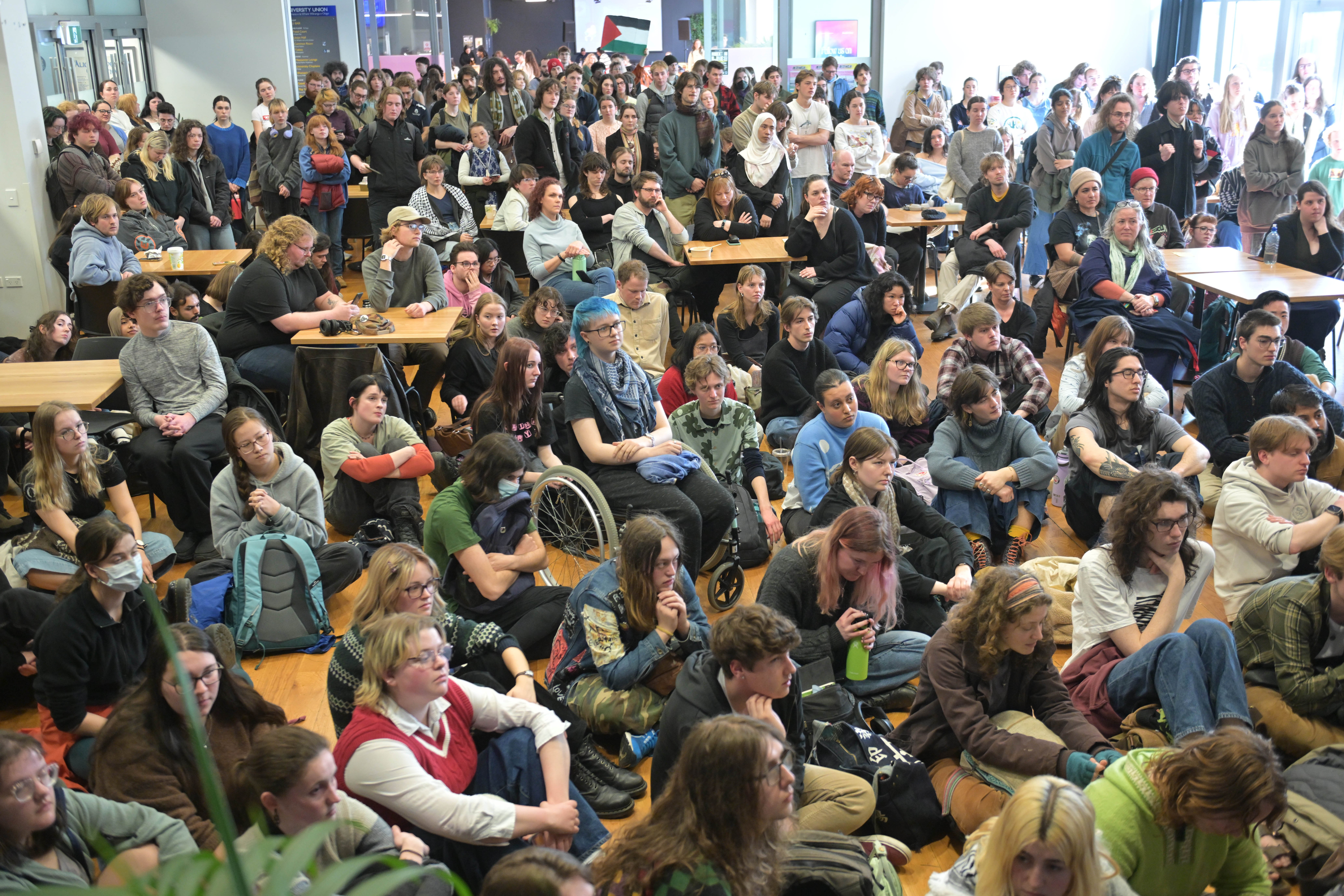Accusations of lies and fearmongering were aired at a packed meeting over whether the Otago University Students’ Association should boycott Israel.
More than 250 students attended the special general meeting in the union common room yesterday, which was triggered after the Otago University Students’ Association (OUSA) executive walked back on the policy at a meeting earlier this month.
In response, OUSA politics representative Jett Groshinski called a special general meeting to reinstate the policy.
"What we have seen is nothing short of a failure of student democracy," Mr Groshinski said.
He said the policy should have been formalised after OUSA’s referendum showed more than 53% were in favour of the policy.
"They acted as if your voices were just as an advisory note, something to take or leave at their convenience."
Mr Groshinski addressed the "very real" concerns the policy could damage OUSA’s finances.
"This policy doesn’t mean ripping everything up overnight.
"This policy means that when OUSA replaces things — merchandise, investments, contracts — we choose ethical alternatives. This policy is gradual, responsible and financially sustainable."

The OUSA’s actions had attempted to "end the conversation" and "Palestine was running out of time".
"Boycott Divest Sanction (BDS) is a Palestinian-led movement that draws from a long tradition of civil resistance against apartheid in South Africa and Jim Crow America.
"It is material, it is economic and it is a proven strategy.
"BDS asks that organisations deny doing business with specific companies complicit in Israeli war crimes when making partnership, sponsorship, or purchasing decisions. This is not all or nothing."
OUSA president Liam White said he apologised for the executive body turning its back on democracy and "for too long, the executive has governed under a thin veil of assumed trust".
"[This meeting] shows that that trust is not unconditional."
Speaker Tyler West drew comparison with historical student activist movements against the Vietnam War and the 1981 Springbok tour, and said "all that is being asked of you is for you to give a single vote" in favour of the policy.
OUSA finance officer Daniel Leamy said everyone agreed the process had been mishandled, but said OUSA "has lost millions of dollars in the past five or so years, mainly due to the fact that the university has refused to increase our funding".
"My point is that we’re under huge financial pressure. If we are to move ahead with a significant BDS policy, that will put huge risk on our budget.
"This isn’t about BDS or not. It’s thinking about how can we meet in the middle?"
Former Dunedin mayor Aaron Hawkins — speaking as an OUSA life member — said: "We can’t afford to determine our sense of moral clarity by working backwards from our balance sheet.
"Because ultimately what this is fundamentally about is how comfortable we are as members of an organisation profiting from the misery that is being inflicted upon people in Gaza and in Palestine."
Green Youth member Jomana Moharram said the policy would cost nothing but a "spine".
At the end of the speeches, the "ayes" were unanimous in favour of the policy from the 250-plus audience.
Mr White told the Otago Daily Times "the results seem pretty clear" and he needed to now establish a working group to develop clear guidelines for OUSA operations.
"But we should be fine. I think it’s all pretty simple now."













